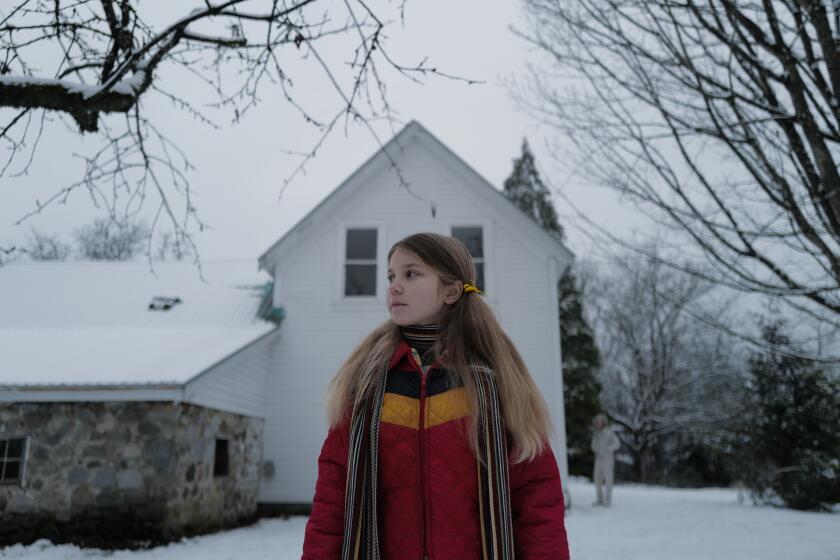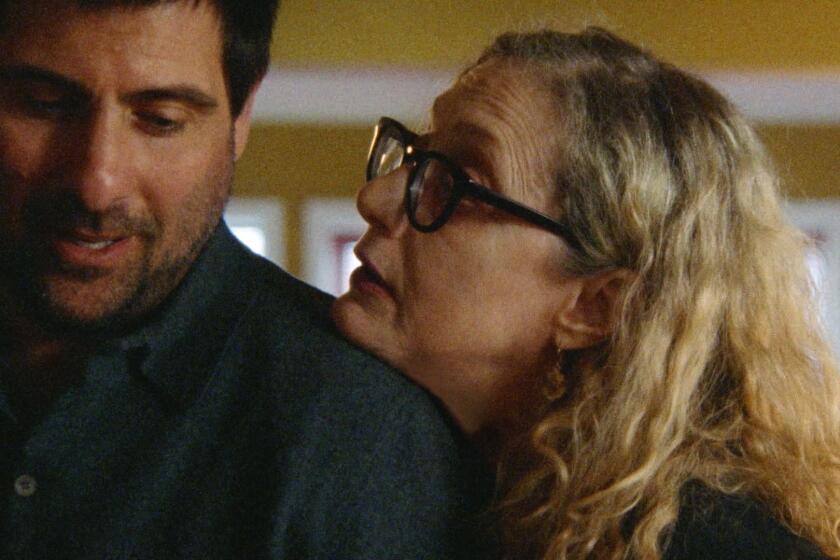Franco finds his inner wife
James Franco is loosening up. That may seem an odd way to characterize an actor who is pursuing an MFA in fiction writing at Columbia University, taking classes at two other institutions of higher learning and preparing to play Allen Ginsberg over the semester break early next year.
But Franco, whose roles have generally followed the template set by his breakthrough performance as a brooding James Dean in a 2001 TV movie, has been showing off a lighter, softer side of late. He wafted through “Pineapple Express” on a haze of pot smoke, lagging languorously behind the beat as a permanently stoned drug dealer. And in “Milk,” which opens Nov. 26, he displays a previously unexplored tenderness as Scott Smith, the longtime lover of Harvey Milk (played by Sean Penn), the openly gay San Francisco city supervisor who was gunned down in 1978.
“Reading the script, I knew that one of the major functions is to be the supporting boyfriend, what in a straight movie would be the supporting wife role,” Franco said, grabbing a cigarette on the terrace of Manhattan’s Bowery Hotel, a copy of Vladimir Nabokov’s “Despair” close at hand. “For a female actress, maybe that would sound like, ‘Oh, no, another supporting wife role.’ But I’ve never been offered that part.”
Although Franco and Penn had not worked together before, they had known each other for years, since Penn sought Franco out to praise his performance as Dean. “That was the best that a young actor could ask for,” Franco says. Their off-screen friendship helped them convey the intimacy of a long-term love affair. “I just felt close to him. I have such admiration for him, I could just transform that into feelings in a relationship.”
Although Milk’s romance with Smith was the major relationship of Milk’s life, Smith is a relatively unexamined figure. Franco supplemented the available material -- Rob Epstein’s documentary “The Times of Harvey Milk” and Randy Shilts’ biography “The Mayor of Castro Street” -- with first-person accounts from Smith’s friends (he died in 1995), but he was mindful of the limited role Smith plays in the overall story. “I thought that playing it any other way than the supporting, grounding partner would hurt the movie,” he says.
Franco is a fiend for character research, building on habits he developed playing Dean. He got his pilot’s license to play a World War I ace in “Flyboys” and spent months learning horseback riding and sword fighting for “Tristan and Isolde.” But he was frustrated when he thought the fruits of his labor failed to show up in the finished film. “I just felt like, sometimes as an actor, I was doing all this work that just disappeared into the air.”
Franco says directing a few low-budget feature films helped him to see acting in a new light. “My directorial efforts I wouldn’t say are the biggest successes,” he says. “But one very positive thing that came out of them is I got a perspective from the other side, and I think it has really helped me as an actor to approach movies in a much more cooperative way. It’s not that I was trying to sabotage any of the previous movies, but I was thinking about myself and my role in a much more isolated way.”
For “Milk,” director Gus Van Sant tried to bridge the gap between his previous experimental features and biopic conventions. An attempt to shoot scenes on the fly with a documentary cameraman was aborted, but Van Sant did encourage the actors to stray from the script. “You’re going into a scene knowing that the other person can say whatever,” Franco says, “so you don’t get lulled into doing the lines the same way over and over.”
--
Adams is a freelance writer.
More to Read
Only good movies
Get the Indie Focus newsletter, Mark Olsen's weekly guide to the world of cinema.
You may occasionally receive promotional content from the Los Angeles Times.










